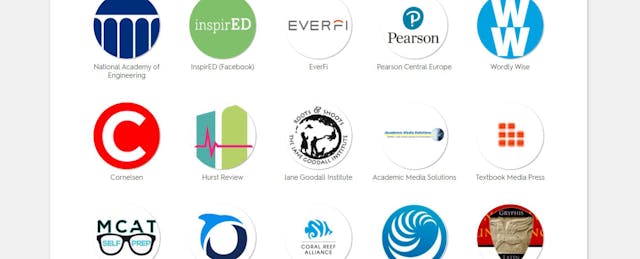For its first 10 years, Quizlet was humming along just fine. The bootstrapped, San Francisco-based company claimed it was profitable thanks to its free popular digital flashcards, for which users could pay an annual subscription to get additional features. Then—and now—it ranked among the top 25 most popular U.S. websites, according to Quantcast.
Then in 2015, the company took a gamble: It raised $12 million for its first round of outside investment. The following year it hired Matt Glotzbach, a former YouTube and Google executive, as its chief executive. Today the company has nearly 60 full-time staff, almost quadruple the number from early 2015.
Companies only successfully raise venture capital when they can make a convincing case for the potential to multiply its revenue. Quizlet has high expectations to fulfill, and the clock is ticking—especially as the company says it is no longer cashflow positive.
Here’s a start: This week, the company shared a new revenue channel—and product offering—through the release of a Verified Creator Program.
This marks the first time that third-party providers can make their content accessible in Quizlet. So far, 15 partners have signed on to make their materials available through Quizlet study sets, which include a collection of flashcards, games, quizzes and other interactive activities.
“We’ve gotten a lot of interest from publishing partners of all shapes and sizes that were interested in officially representing their brand on Quizlet,” Glotzbach told EdSurge in an interview. “What they recognize is that their users are already on our platform, using Quizlet on a daily, weekly basis.”
The company claims more than 25 million monthly active users, with more than half of all U.S. high school students using its studying tools.
Content partners include publishers such as Pearson, nonprofits including the Jane Goodall Institute, test-prep providers like MCAT Self Prep, and other edtech companies including EverFi. There’s also InspirED, a collection of social and emotional learning materials created through a partnership between Facebook and the Yale Center for Emotional Intelligence.
This verified creator program “opens up the third leg of the stool” in terms of Quizlet’s revenue channels, alongside subscriptions and advertisements. Here’s how Glotzbach says the money will flow from publishing partners: These companies will include codes in the physical textbooks they sell, which students can use to access related study sets on Quizlet. The publishers will give a cut of such textbook sales to Quizlet.
“In terms of the deals we have in place today, they range from short-term 5-figure deals, to larger, 6-figure multi-year deals,” Glotzbach adds. He expects the dollars from these partnerships to make up 20 to 30 percent of Quizlet’s overall revenues by 2020.
Not all verified content providers have this business arrangement with Quizlet; their materials will be available for free to all users. However, study sets that require a code to unlock will only be accessible if a user has purchased the materials from the content provider. What Glotzbach says Quizlet will not do is charge users directly for access to content from its partners. “The marketplace model is not the case,” he says.
That publishers like Pearson would make their materials available on a platform like Quizlet might mark a tidal shift in the education industry. Historically, what gave established education companies a leg up over their smaller competitors were their robust distribution channels to K-12 schools and districts, developed through sales relationships and networks. Yet Quizlet’s direct reach to individual students and parents across the globe is proving attractive—especially to struggling publishers.
Quizlet will not be the only edtech company seeking to monetize by allowing other education companies access to its large user base. Kahoot, which boasts 50 million unique users for its game-based learning tool, has already hinted plans to offer “premium” content from education companies. Brian Grey, CEO of Remind, a school communication platform that claims 20 million users, told EdSurge it is exploring “a channel through which services find their way to students, teachers and parents.” ClassDojo, which offers a similar product, has kept mum about its revenue strategy but has already experimented with delivering third-party content to its users.


